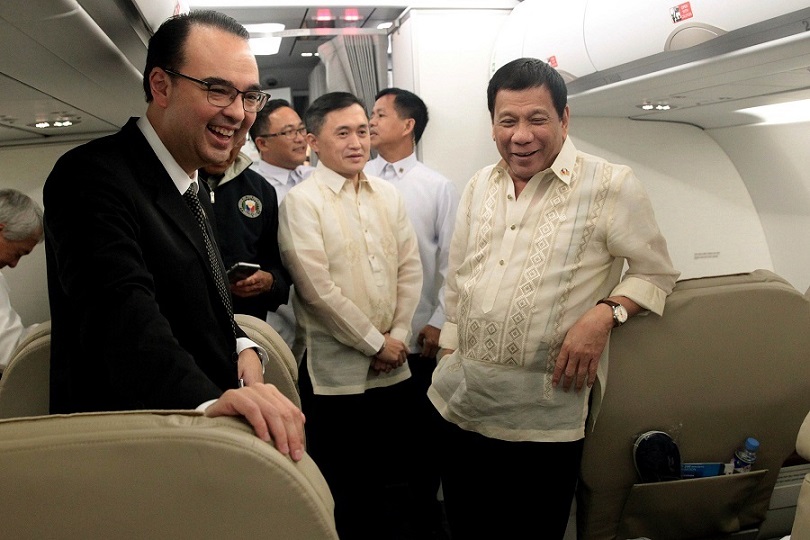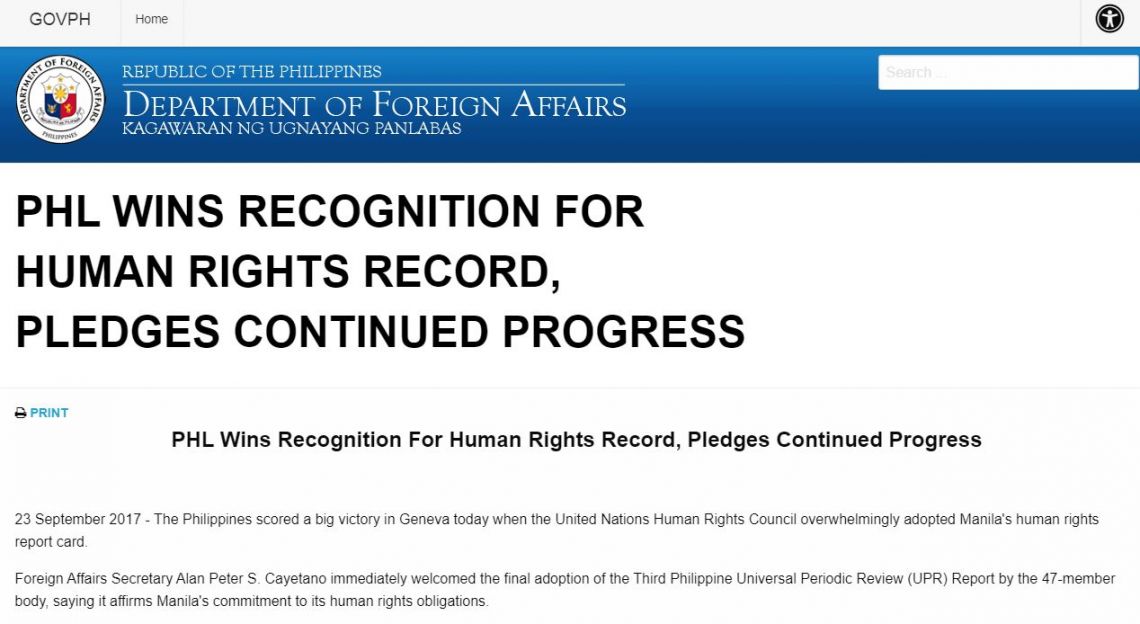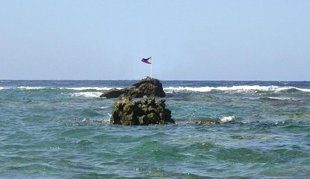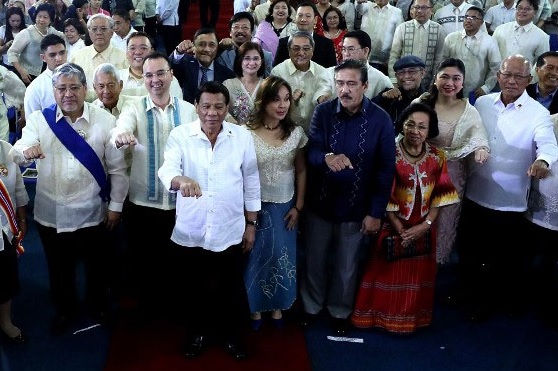A Sept. 13 Department of Foreign Affairs press release, responding to a United Nations official’s critical statement about the human rights situation in the country, has distorted the facts.
The press release slammed High Commissioner for Human Rights Zeid Ra’ad Al Hussein supposedly “for having severely mischaracterized the situation in the Philippines in his report to the Human Rights Council.”
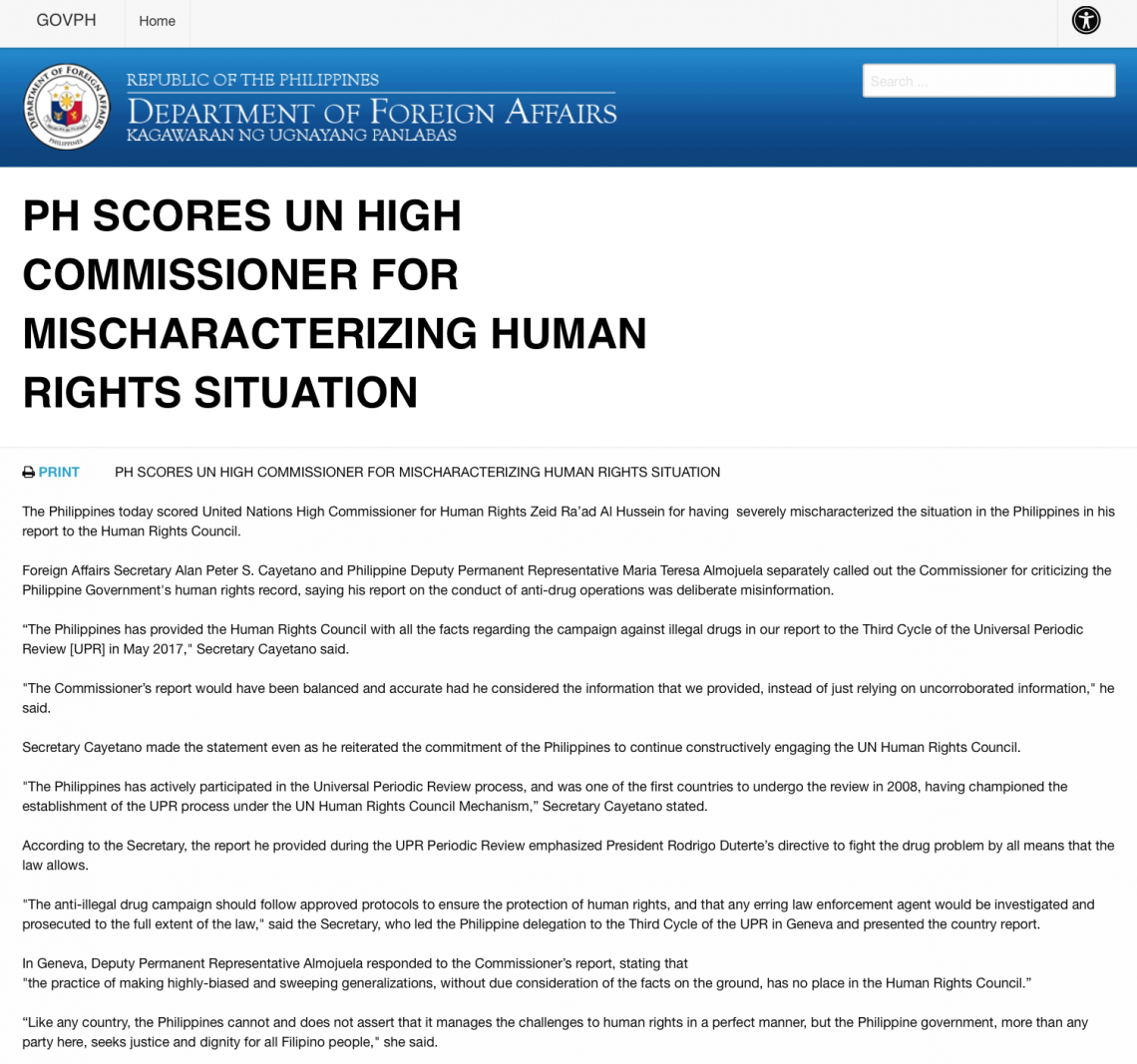
A screenshot of the Department of Foreign Affairs Sept. 13 press release posted on their website.
Al Hussein, in a statement Sept. 11, expressed “grave” concern about what he described as President Rodrigo Duterte’s “open support for a shoot-to-kill policy regarding suspects” as well as extrajudicial killings and impunity arising from the administration’s war on drugs.
“This lack of respect for the due process rights of all Filipinos is appalling,” Al Hussein said.
The DFA press release, quoting Foreign Affairs Secretary Alan Peter Cayetano, read:
“The Philippines has provided the Human Rights Council with all the facts regarding the campaign against illegal drugs in our report to the Third Cycle of the Universal Periodic Review (UPR) in May 2017.
“The Commissioner’s report would have been balanced and accurate had he considered the information that we provided, instead of just relying on uncorroborated information.”
Source: Department of Foreign Affairs website
Cayetano last May represented the country in the UPR, a process done every five years to review the human rights records of UN member states.
FACT
What Cayetano told the UN then and what the DFA press release purports to be “balanced and accurate” information about the human rights situation in the country in the context of the war on drugs are both spurious.
Cayetano said during the UPR that the Duterte administration has a “policy of zero tolerance for abuse of law enforcers,” a claim contradicted by recorded pronouncements of the president himself.
As noted in an earlier VERA Files fact check, Duterte has on several instances said on tape that police officers should “just obey” his orders and he “will answer for it personally.” (See VERA FILES FACT CHECK: Cayetano tells UN Duterte admin has ‘zero tolerance’ for police abuse)
The DFA press release, after briefly describing the UPR, ends as well with a misleading note:
“Many UN Member States, especially those from ASEAN and developing countries, expressed support for the efforts of the Philippines to address the drug menace. Some Member States also committed to provide support for the Philippine drug treatment and rehabilitation plans.”
The text of the UPR report, which contains the responses, conclusions and recommendations of UN member states to Cayetano’s presentation for the Philippines, does not bear out such claim.
Of the 10 Association of Southeast Asian Nations member countries, only Thailand and Myanmar mentioned the war on drugs, but their responses are not clear-cut messages of support.
Their responses, lifted directly from the UPR report, are as follows:
- “Myanmar stated that the response to the threat posed by illegal drug use should be left to the Government and took positive note of recent measures with regard to the environment” (Myanmar)
- “Continue its efforts to protect its people from the threat of drugs while upholding human rights values” (Myanmar)
- “Develop its third human rights action plan to guide its policy direction and ensure the implementation of programmes for an even more robust promotion and protection of human rights” (Thailand)
ASEAN’s purported support for the war on drugs, as claimed in the DFA press release, is also not explicitly reflected in the joint communique released following the 50th ASEAN Foreign Ministers’ Meeting in Manila Aug. 5.
Item 36 in the joint communique, titled “ASEAN Ministerial Meeting on Drug Matters (AMMD),” mentions “efforts to effectively address the illicit drugs abuse problem” but does not mention the Philippines.
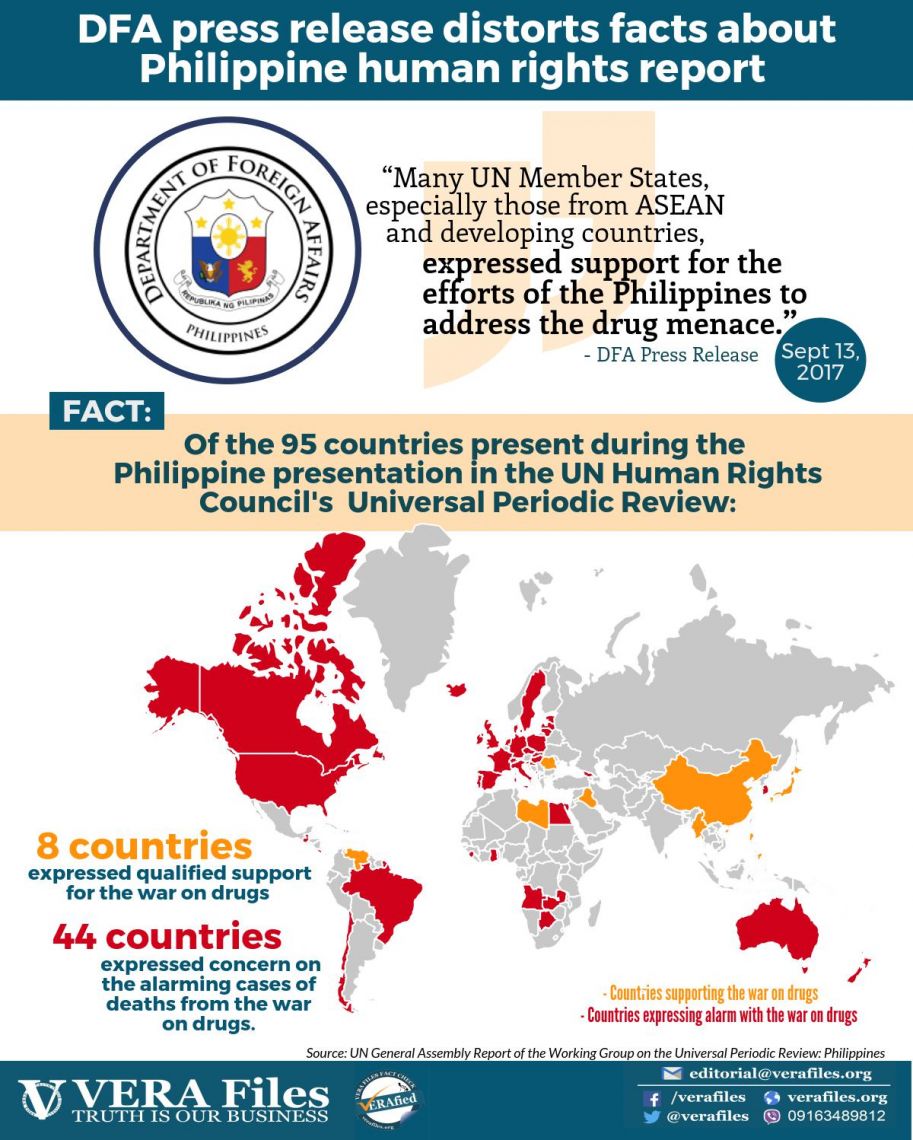
More on the UPR report, 44 of the 95 countries during the Philippine presentation expressed concern on the alarming cases of deaths from the war on drugs, outnumbering the eight countries who have expressed support, albeit qualified.
Among the responses expressing alarm include:
- “Immediately end the campaign of extrajudicial killings, which may amount to crimes against humanity under international law” (Ghana)
- “Put an end to extrajudicial killings, including those related to the war on drugs, enforced disappearances, illegal arrests and detention, torture, harassment and other human rights violations” (Slovakia)
- “Thoroughly investigate killings by private armies and vigilantes responsible for unsanctioned activities during the Government’s anti-drug campaign and prosecute those responsible” (Sierra Leone)
- “Take steps to put an end to extrajudicial executions, enforced disappearances, illegal arrests and acts of torture perpetrated by the police corps, and private security or paramilitary groups, and to investigate actions of the police dismantling all groups created in the margin of law” (Costa Rica)
- “Immediately end extrajudicial executions and carry out an independent and impartial investigation into all enforced disappearances and extrajudicial executions in order to bring the authors of these crimes to justice” (Chile)
- “Botswana noted the commitment to promoting human rights but was concerned by reports of extrajudicial killings, enforced disappearances and heightened campaigns against illegal drug-related activities resulting in deaths.” (Botswana)
What the DFA press release meant by “developing countries” is unclear. Such categorization is too broad and no longer useful, according to the World Bank, which had phased the term out since 2015.
Eight of the 95 countries present during the Philippine presentation at the UPR, including ASEAN member Myanmar, expressed qualified support for the Duterte government’s war on drugs.
They are:
- China (expressed support for campaign against illegal drugs, but also recommended complete and effective implementation of a “national human rights action plan”)
- Iraq (recommended that measures should be “within the framework of the Constitution, the law and international human rights standards”)
- Japan (offered support in building rehabilitation facilities for drug dependents)
- Lebanon (recommended continuing the effort within the framework of the protection of human rights)
- Libya (“appreciated the efforts” to combat illegal drug use)
- Myanmar
- Romania (recommended a “holistic approach” focusing on law enforcement operations, rehabilitation and reintegration)
- Venezuela (recommended to “strengthen the campaign against illegal drugs”)
While there has been no clear-cut support for the war on drugs from ASEAN member countries in either the UPR report or the ASEAN foreign ministers’ joint communique, the Philippines has had indeed received commitments of support from other countries for drug treatment and rehabilitation programs.
Based on several news reports, these countries include Japan, and more recently the United States.
The Sept. 13 DFA press release was not the first to have distorted the proceedings at the UPR.
Earlier, the Philippine presentation at the UPR had been subject of a fake news, published by the state-run Philippine News Agency, wrongly claiming that 95 countries were convinced that extrajudicial killings are non-existent in the Philippines. (See VERA FILES FACT CHECK: PNA replaces its fake news that 95 states are convinced there are no EJKs in the country; no apology or reason given)
Sources:
United Nations General Assembly, Report of the Working Group on the Universal Periodic Review: Philippines
United Nations Office of the High Commissioner, Darker and more dangerous: High Commissioner updates the Human Rights Council on human rights issues in 40 countries
Asean.org, Joint Communique of the 50th Asean Foreign Ministers Meeting
World Bank, Should we continue to use the term “developing world”?
ABS-CBN News, PH, Japan ink grant deal for drug rehab program
Business World, Japan provides P826 million to improve drug rehab facilities
Inquirer, DOH, JICA sign P826M program for drug users’ rehabilitation
Philippine Star, Japan donates P826 M for Philippine drug rehabilitation
CNN Philippines, U.S., PH ink ₱102-M deal to reduce ‘drug demand’
GMA News, US commits P102M for PHL drug rehab program
Philippine Star, US gives $2 M more for Philippines drug rehab
(Guided by the code of principles of the International Fact-Checking Network at Poynter, VERA Files tracks the false claims, flip-flops, misleading statements of public officials and figures, and debunks them with factual evidence. Find out more about this initiative.)

